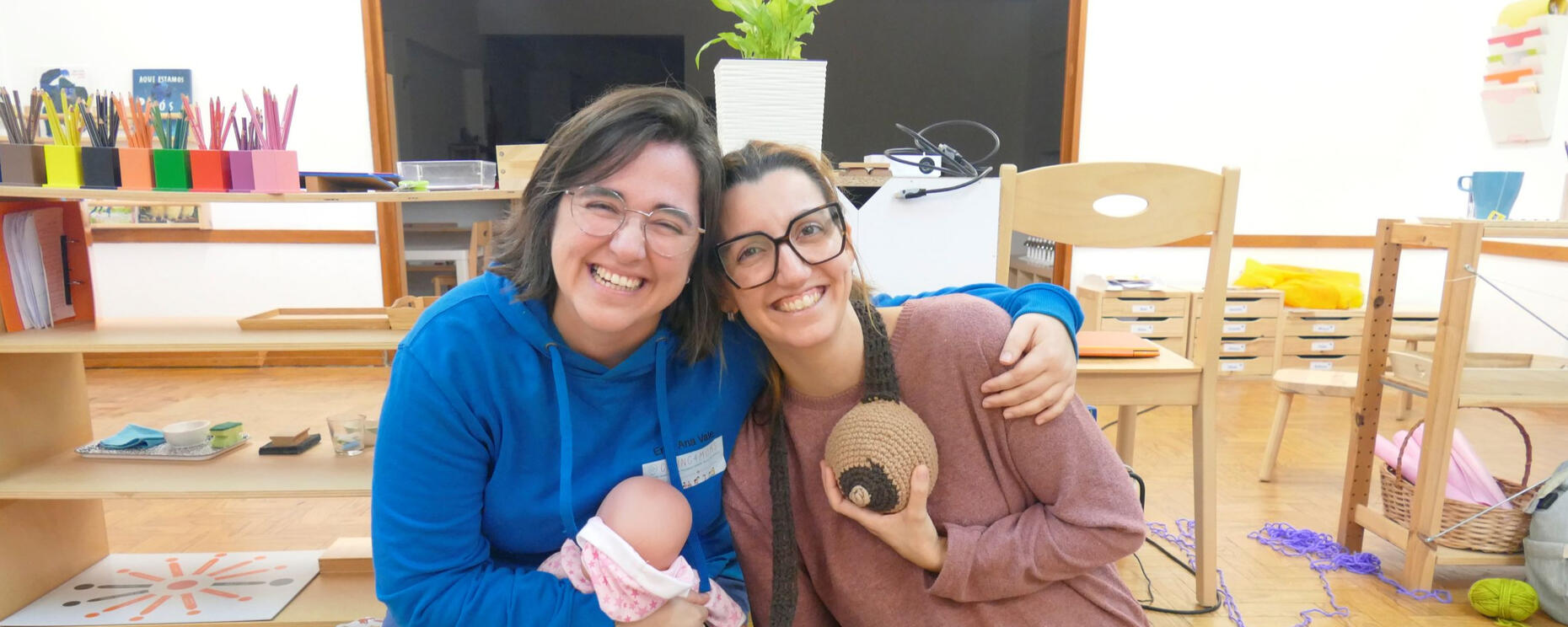
What moves us?
The desire to genuinely care for mothers, fathers and babies in the perinatal period, from pregnancy to the end of the first year after birth.The even greater desire to raise awareness to the importance of maternal and paternal mental health and breastfeeding.We focus on people and their needs, always bearing in mind the value of mental health and breastfeeding in the perinatal period, respecting choices, concerns and wishes expressed and reflecting on how to integrate facilitating strategies into the daily lives of those who seek us.Whether in a family, school, business context, as well as in the various contexts where health professionals develop their practice, when we are present, we are consistently dedicated, responsible and full.
How do we face our work?
We base our intervention in five fundamental basics , whatever the context is:Active Listening We are present to listen carefully to the needs of families, schools, companies and health professionals
Authenticity We act according to the way we see the world, based on respect, honesty, clarity and empathy for others
Passion We love what we do and that is (also) why dedication and commitment are always inherent in our processes
InnovationWe like to innovate in the way we respond to those who seek us, based on the available evidence, as well as on our experience and rigor
Ethics We reflect on what is proposed and accomplished, always taking into account the ethical principles that govern our practice as nurses, as well as the best available evidence for decision making
The nursing models that shape our reasoning in practice
Caring characterizes the professional action of nurses and the central focus of their actions.
Marie-Françoise Collière
As Collière (1999) explains,
⚕️Human care is an individual act that each person performs to himself or herself when he or she becomes autonomous, but professional care is also an act of reciprocity that is provided to people in a transitory or definitive way when they need help to ensure their vital needs.
⚕️In the perinatal period, it is common for women and families to need support to take care of themselves and their baby in various areas of self-care in a transitory way.
⚕️Sometimes, a few guidelines are enough, sometimes more help is needed.
⚕️In any of the cases, we are present, aware that nursing care is professional care, for us, centered on the needs of those who seek us.
Laurie Gottlieb
For Gottlieb (2016),
⚕️Strength-based care is an approach that sees the person holistically focusing on what the person can do best, what they are working on and working well, as well as the resources that people have and that help them to deal more effectively with their lives, health and health care challenges.
⚕️Working based on a collaborative partnership with mothers, fathers and babies in the perinatal period in order to enhance the 'strengths' of each one is essential at this stage so that all the family's needs can be effectively met, even when challenges arise and day-to-day demands are a constant.
⚕️In the space we create with families, this is the role we occupy, as "partner" nurses, who listen, welcome, guide and who are present, even when they are not around, aware of their role, their place and what it means empirically and scientifically to go through the perinatal period.
Afaf Meleis
For Meleis (2010),
⚕️The transition period (the passage from one stable phase to another) is a central concept for the nursing discipline, since they are periods of greater instability where people's encounters with nurses are more likely. Through the action of nurses in the transition phases, acting in an anticipatory way, preparing for the change of roles and preventing the negative effects of the change, people can benefit significantly from their interventions, increasing the quality of life and preventing the occurrence/exacerbation of health problems, for example.
⚕️In this sequence, motherhood can be one of the most demanding periods of transition on a social, physical, mental and spiritual level that women encounter in their lives. It is not enough to want to be a mother. You have to become a mother, and for that, you have to go through a transition process, which presupposes a complex mental process whose degree of success determines your well-being, that of your family and that of your baby.
⚕️As nurses, we know that we can play an active role in this phase, facilitating the transition to maternity/paternity at all levels and in different areas that they can consult in the nursing services we provide.
